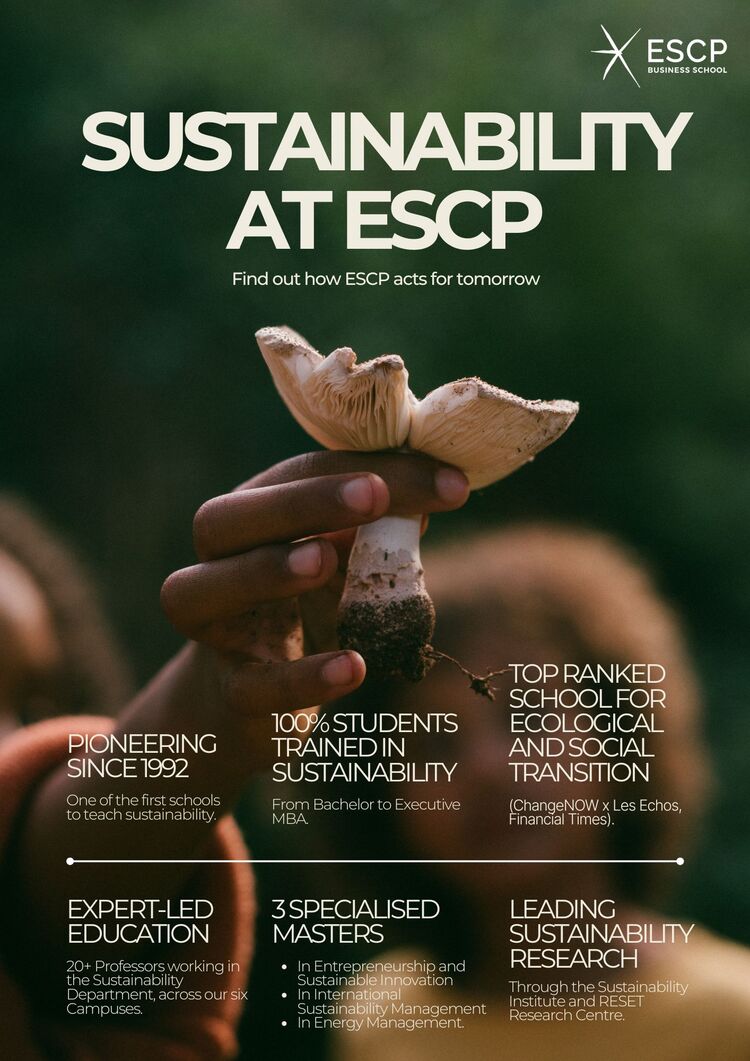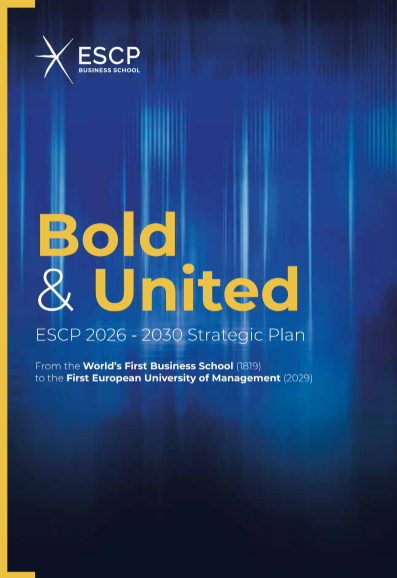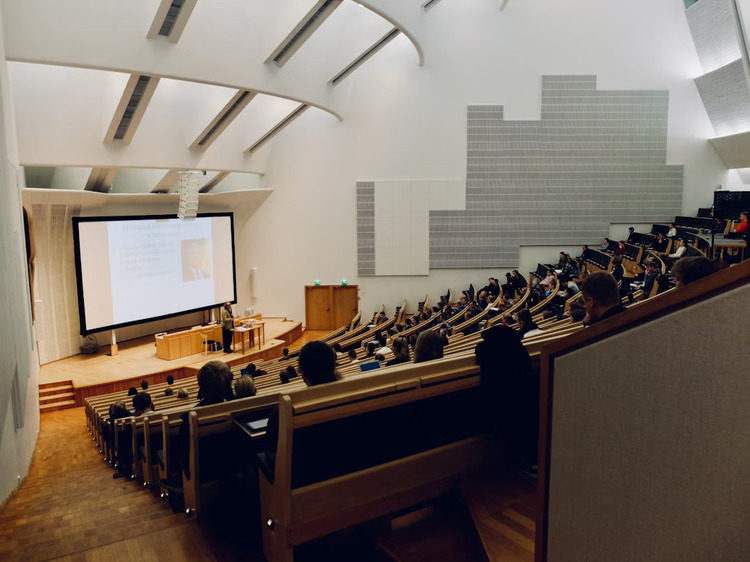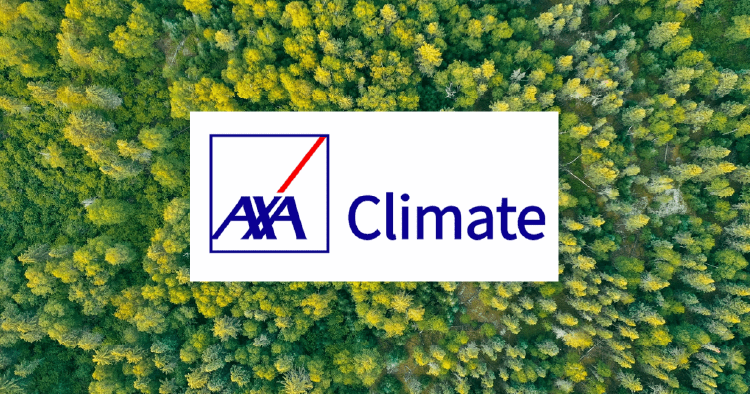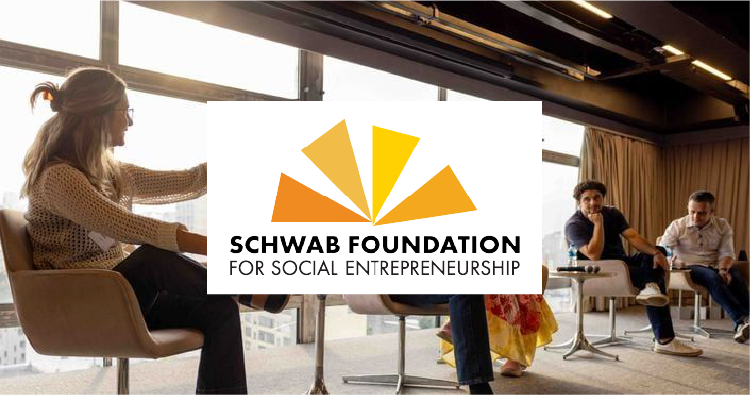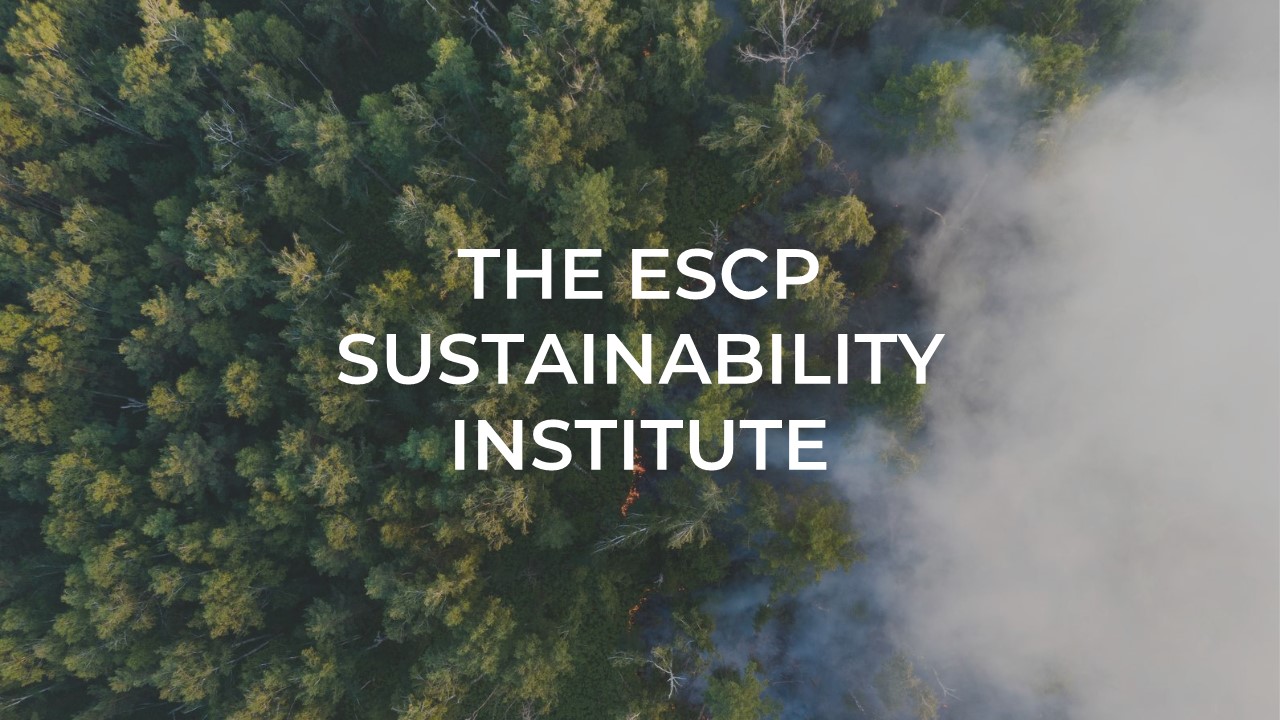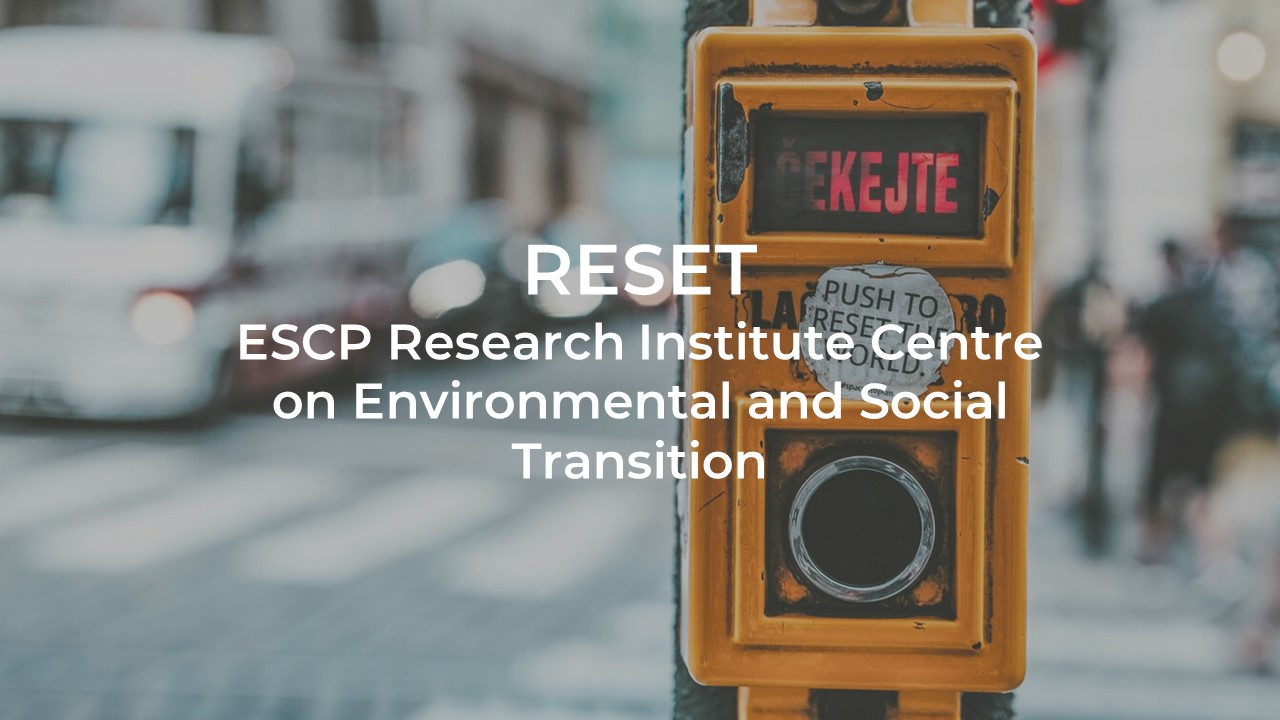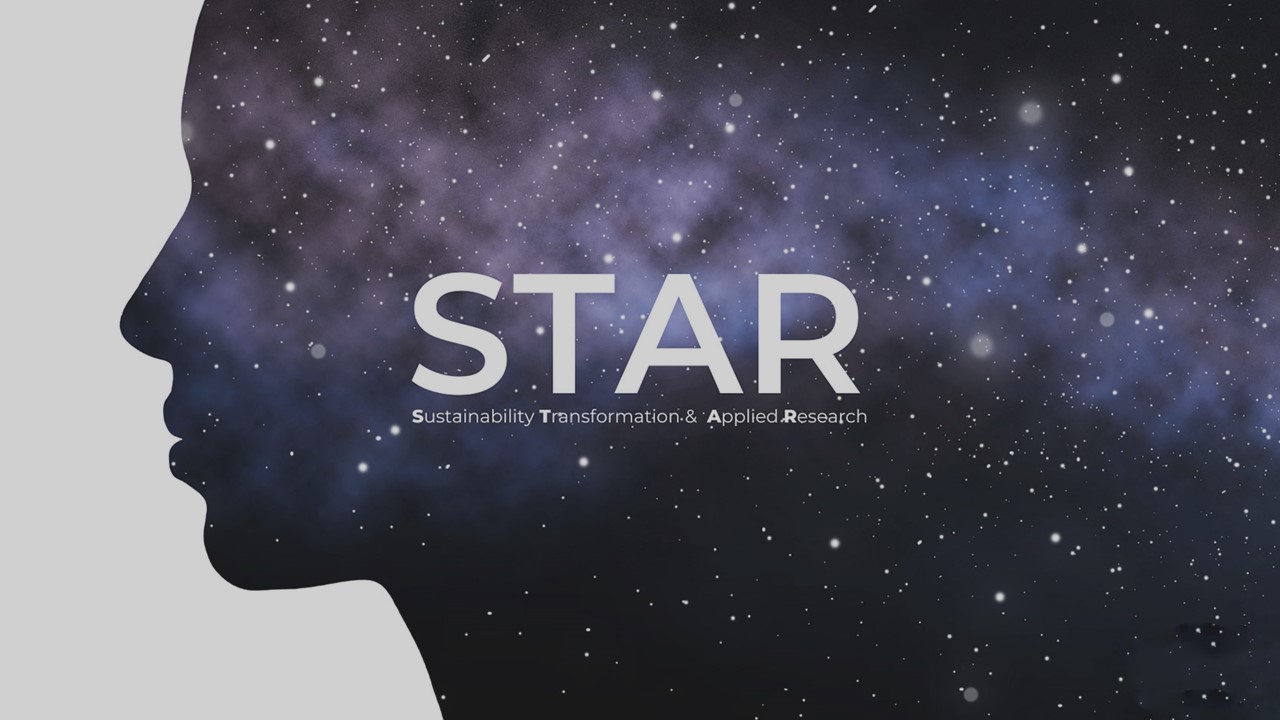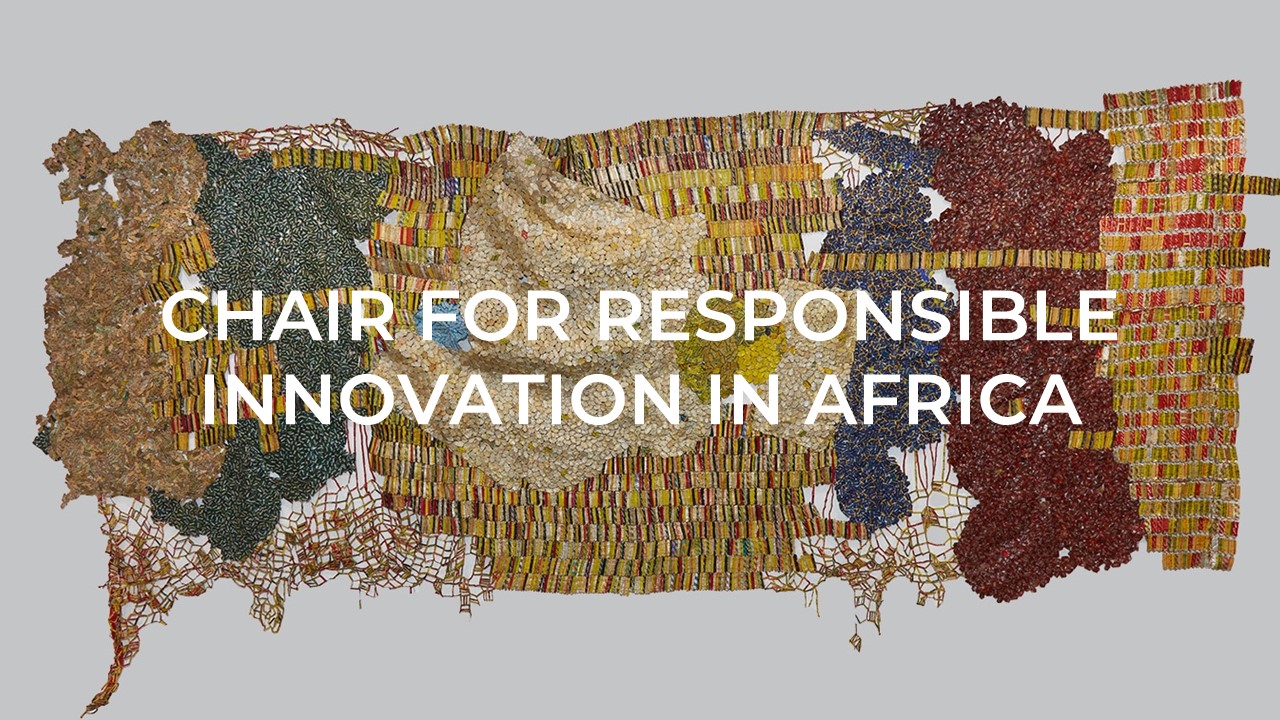OUR PURPOSE AND GOALS
In the near future, today’s students will be leading tomorrow’s businesses, political institutions and civic organisations. They will need to navigate a world where climate change and associated social challenges have redefined the rules of the game. At ESCP, we take responsibility for preparing these leaders to meet the challenges head-on, and to prevent or mitigate them before they occur. We do so by integrating environmental and social sustainability across all our programmes, our research, and our practical impact on society and the economy.
Our shared approach at ESCP is to embrace complexity, act on science and evidence, think in systems rather than silos, and challenge conventional approaches to reshape how business engages with society while respecting planetary boundaries. In this spirit, and in solidarity with the global academic community, we proudly support #StandUpForScience, reaffirming our conviction that we need to protect science to grow as a society.

“As a globally leading institution in business and management education, ESCP takes responsibility for shaping future ethical and environmentally conscious leaders able to navigate the complex challenges of a changing world. We integrate environmental and social sustainability across all our programmes, recognising that one cannot exist without the other. By bridging research, education and real-world impact, we strive to create a viable, carbon-neutral and fairer economy and society.”
Prof. GORGI KRLEV
Associate Dean of Sustainability
In line with the Bold&United strategy, ESCP’s commitment to sustainability goes hand in hand with our leadership in the strategic use of AI. As technology and AI evolve at an unprecedented pace, we ensure that humans remain at the centre. We encourage all our students, faculty and staff to engage with the opportunities and challenges AI and technology bring, whether technical, environmental, ethical, or regulatory. We enable them to leverage AI tools and applications to advance sustainability transformations across research, teaching, and institutional transformations.
Did you know ?
Sustainability at a glance at ESCP

100% of ESCP students are trained in sustainability (from Bachelor to Executive MBA).

ESCP is DD&RS certified for sustainability and social responsibility.

ESCP is a top ranked institution for ecological and social transition (ChangeNOW, FInancial Times, etc.).
25+ Professors at ESCP are teaching sustainability.

16 student societies at ESCP are focussed on societal impact and sustainability.
ESCP has 3 MSc programmes dedicated to sustainability.
Sustainability governance resting on 4 core pillars
THE SUSTAINBILITY LEADERS ALLIANCE
A coalition of top-tier international institutions in higher education (in formation) working together to drive innovation and impact in and beyond business research and education.
International collaboration & collective transformation
THE ADVISORY COUNCIL ON SUSTAINABILITY
A group of leaders from key fields working with ESCP to accelerate the transition to a carbon-neutral and equitable economy.
SUSTAINABILITY TEAM

- Carbon reduction
- Curriculum revolution
- External partnerships

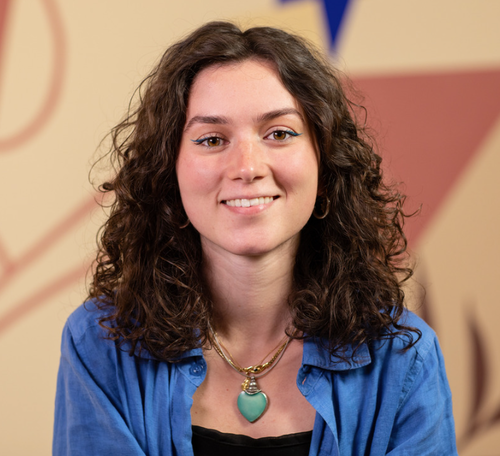

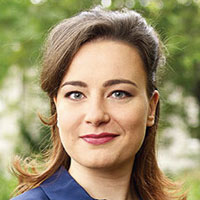
INSTITUTE

transfer
- Fostering innovative research & transfer formats
- Shaping responsible leaders
- Bridging academia & industry
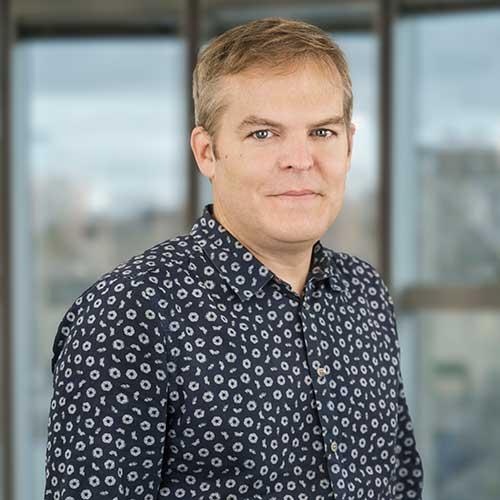
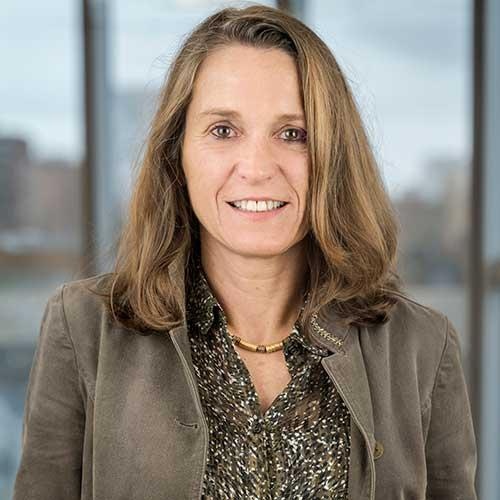

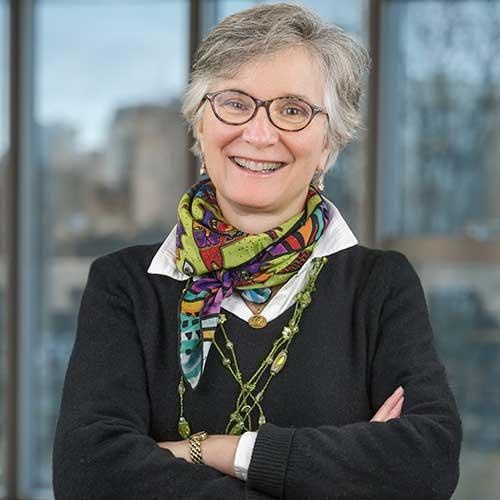
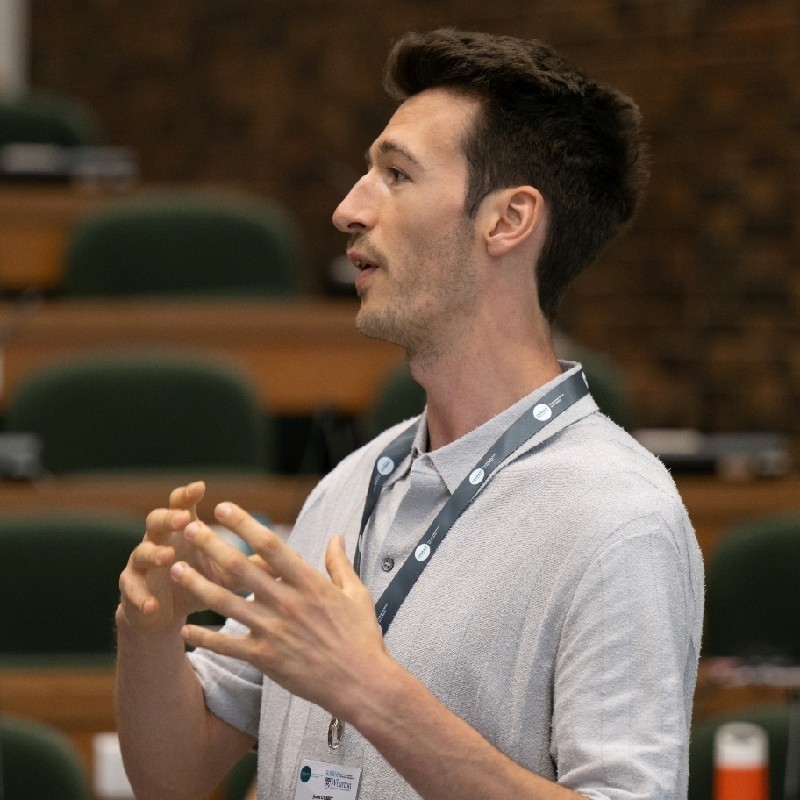
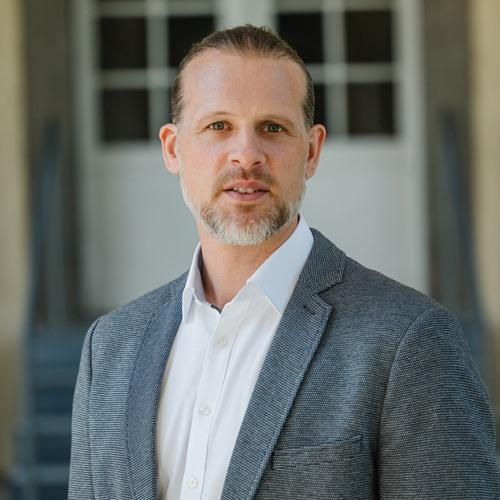
(Research Centre on Environmental & Societal Transitions)

- Creating new research agendas & communities
- Redefining corporate sustainability
- Moving beyond disciplines

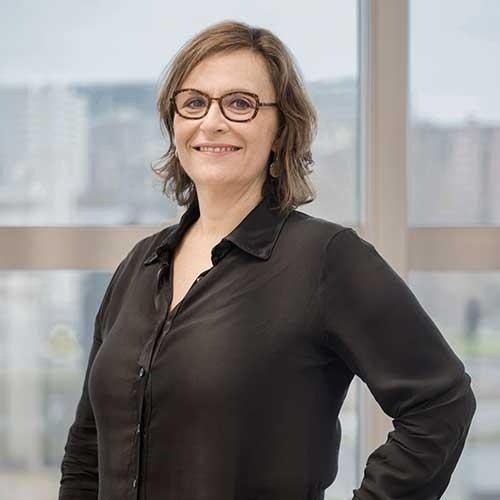
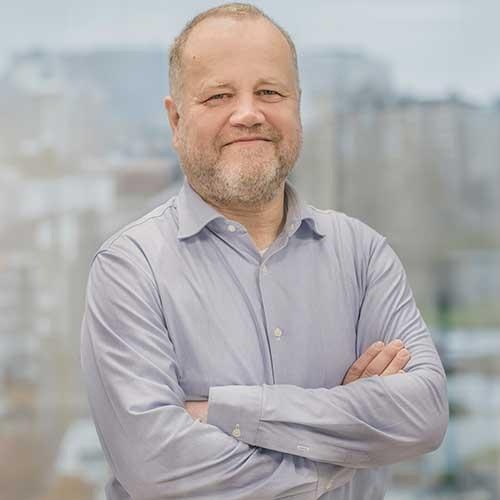
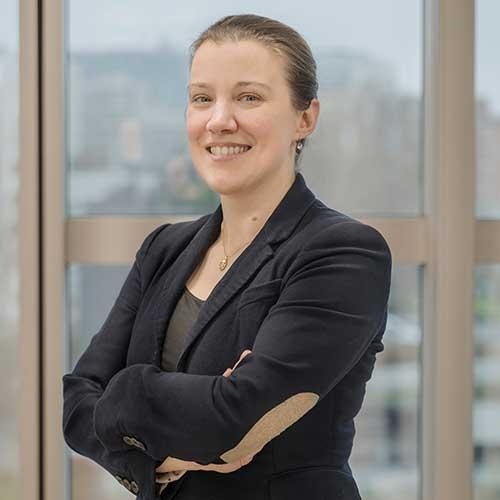
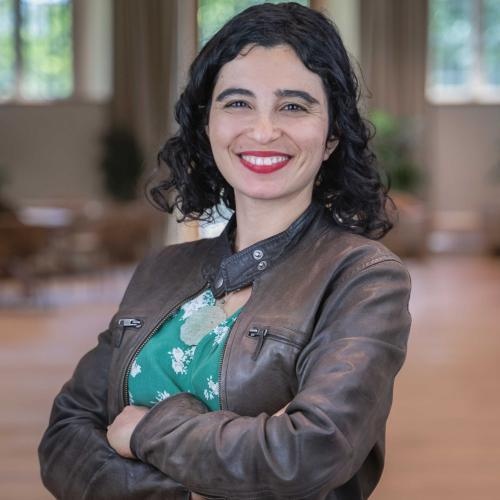

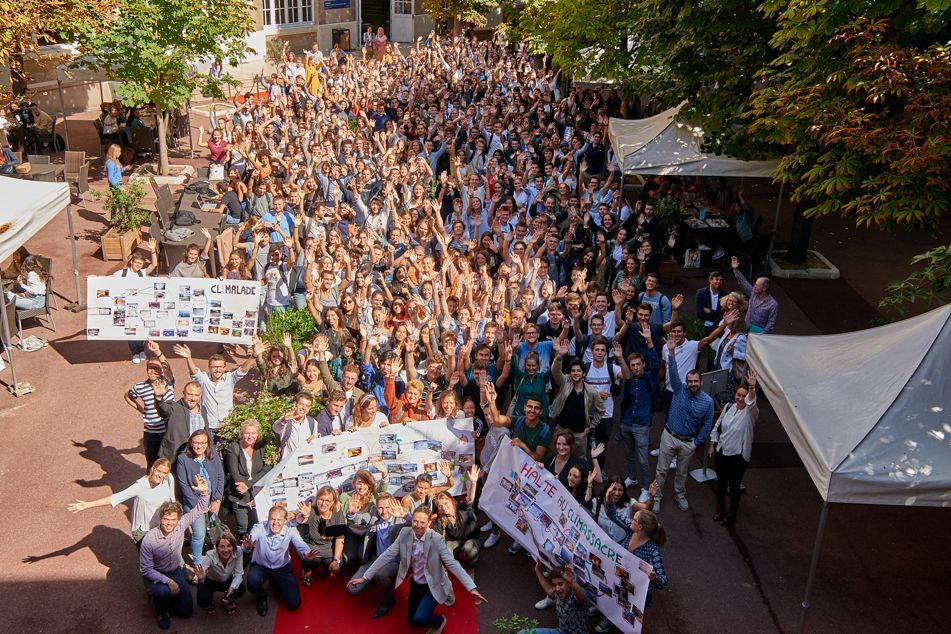
strategy
- Developing innovative & immersive education
- Embedding sustainability across subject areas
- Driving sustainability transformation
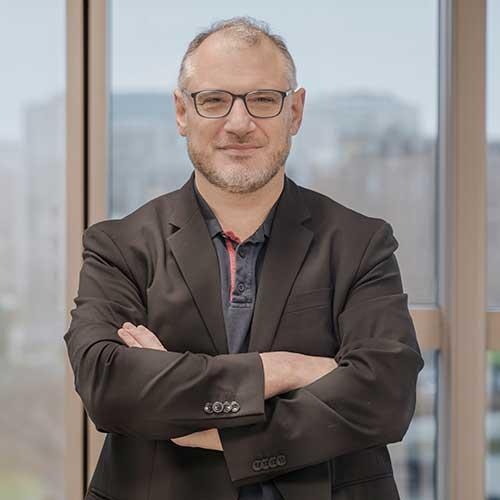

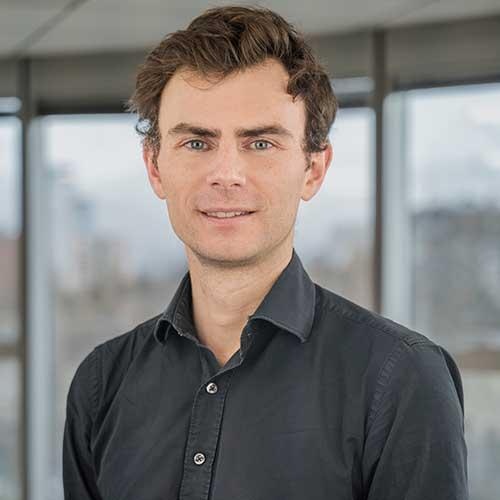
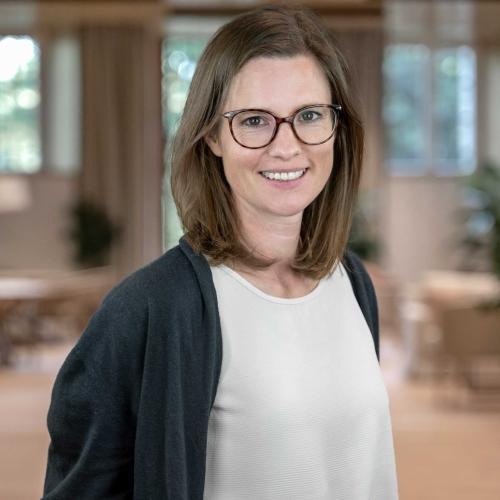
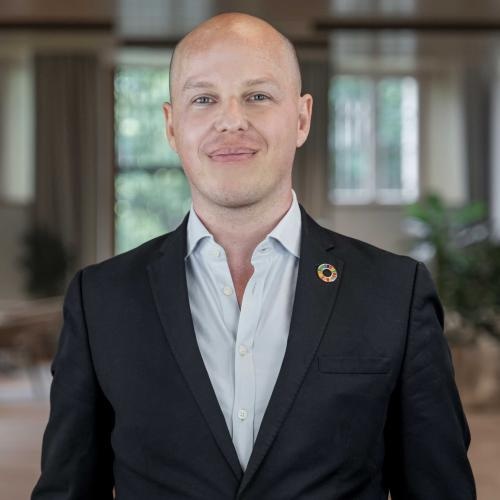
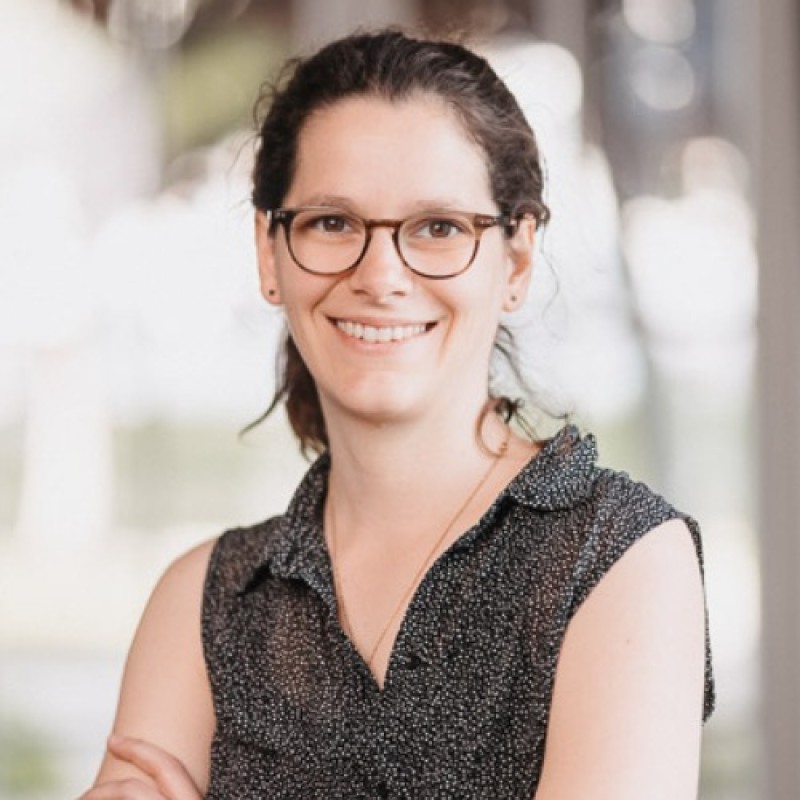
ESCP Associate Dean of Sustainability and Sustainability Team
ESCP embeds sustainability at multiple levels. A dedicated federal Sustainability Team works hand-in-hand with “Green and Impact Offices” on each of ESCP’s five campuses in Paris, London, Berlin, Madrid and Turin, collectively engaging over 20 staff members. Under the leadership of the Associate Dean of Sustainability, these teams implement concrete measures ranging from reducing the ESCP’s carbon footprint to strengthening its global leadership in sustainability–within the world of academia and beyond.
ESCP Sustainability Institute
Science-practice transfer, dealing with the complexities of climate change, planetary boundaries and societal grand challenges, lies at the heart of the ESCP Sustainability Institute. The Institute leverages innovative research and education in sustainability management, targeting the nexus of management, natural sciences, social sciences, with implications for policy makers and practitioners.
ESCP Research Centre on Environmental and Societal Transitions (RESET)
RESET drives impactful, interdisciplinary research. The Centre deals with essential sustainability topics, which range from: new models and paradigms in corporate sustainability, to sustainability transitions, to the future of growth within planetary boundaries.
ESCP Sustainability Department
More than 25 Professors with expertise in circular economy, responsible innovation, or sustainable supply chain management are defining the philosophy and strategy concerning sustainability education at ESCP. The Department promotes pedagogical innovation and teaching that is grounded in the latest, cutting-edge research.
The four internal pillars of sustainability governance at ESCP are complemented by two external structures: The Sustainability Leaders Alliance (in formation) and the ESCP High-level Advisory Council on Sustainability.
Federal Sustainability Governance
ESCP SUSTAINABILITY GOVERNANCE
Coordinating and aligning sustainability efforts across our Campuses
BERLIN*
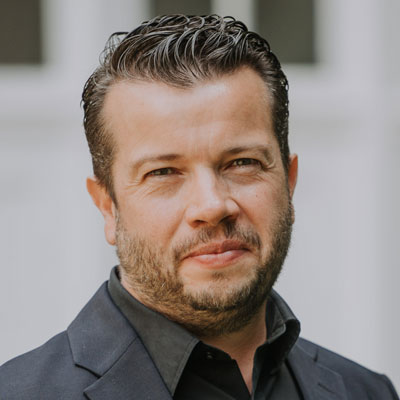
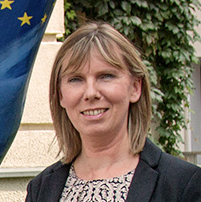

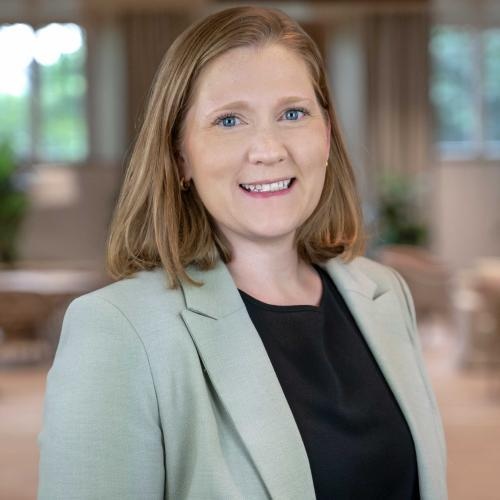
TURIN*
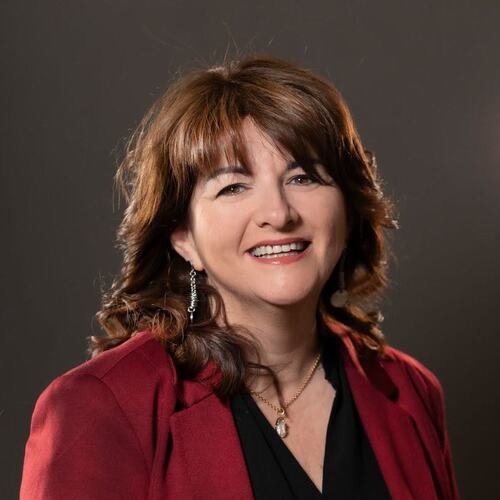
Each "Green & Impact Office" is fortified by a student representative and directs a local "ESG Committee".
PARIS & FEDERAL
The Dean's Team




Finance Team

LONDON*


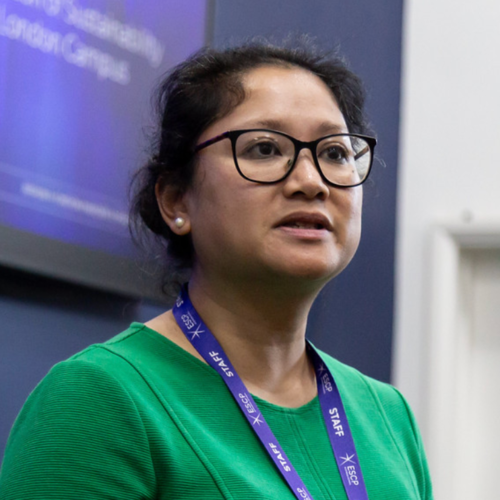
MADRID*
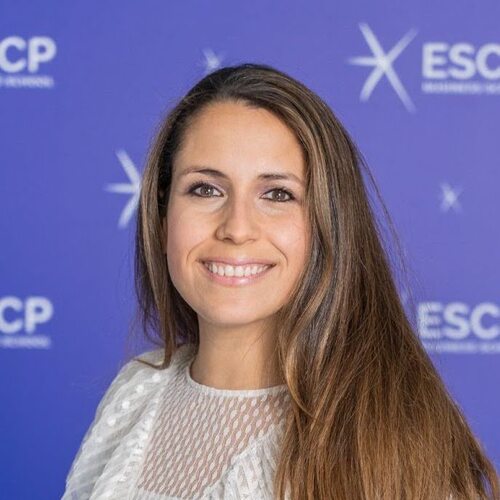
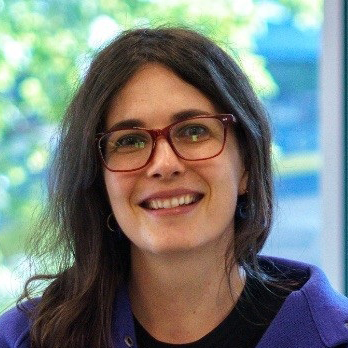

10 CONNECTORS
in all Departments driving sustainability engagement
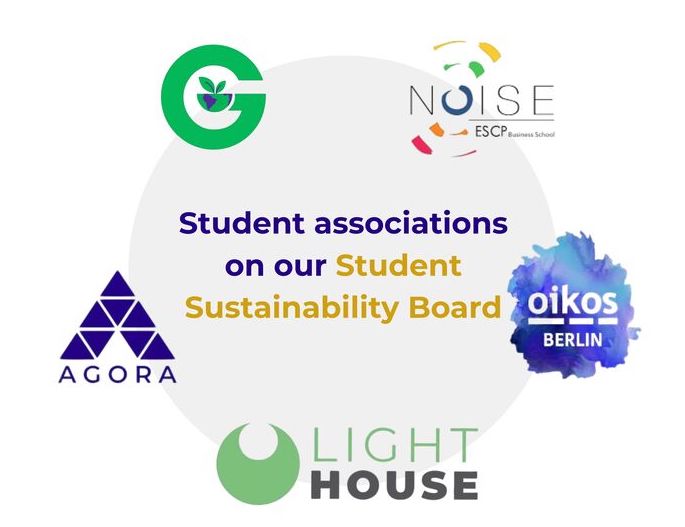
THE SUSTAINABILITY
DEPARTMENT
25+ Professors across our Campuses
News
THE ADVISORY COUNCIL ON SUSTAINABILITY
At ESCP Business School, we believe that business education must take responsibility for creating a sustainable, carbon-neutral and more equitable economy and society. The Sustainability Advisory Council brings together thought and action leaders, spanning climate science, activism, policy, finance, civil society, social and environmental organisations, corporate industry, diversity, international organisations and development, global networks, technology and AI.
ESCP Associate Dean of Sustainability and Sustainability Team
- Ensuring accountability and control: Providing external oversight on ESCP’s sustainability strategy, ensuring alignment with long-term objectives.
- Enhancing creativity, innovation and impact: Driving measurable change in ESCP’s core mission and in its engagement with these sustainability leaders and their organizations.
This gives rise to a number of goals and activities
- Shaping the future of business and society: Through targeted discussions, events or dialogues, we aim to explore pressing questions like embedding sustainability in business education, reengineering current social and economic systems, or mobilizing younger generations toward sustainable practices.
- Creating a powerful platform for collective action: Collaborating on publications, thought pieces, and strategic initiatives, amplifying sustainability efforts in education, research, as well as the economy and society.

Advisory Council Members
Managed and presided by

Gorgi Krlev
Associate Dean and Professor of Sustainability at ESCP Business School
Gorgi Krlev is the Associate Dean and Professor of Sustainability as well as Member of the Executive Committee at ESCP Business School. He also serves as the Director of ESCP’s Research Centre on Environmental and Societal Transitions (RESET). Gorgi studies how new types of entrepreneurship, innovation and collaboration create positive impacts on society. He engages in research, teaching and “impact work” that tackle the biggest social and environmental sustainability challenges of our time. He regularly gives talks on how to address these challenges and advises civil society organizations, international businesses, and public policy makers.
Its members

Sheree Atcheson is a global diversity and inclusion leader, who sits at executive level. Born in Northern Ireland, she began as a software engineer before moving into diversity roles at Deloitte, Monzo, Peakon and Valtech. Previously, she helped lead the global expansion of Women Who Code, a non-profit dedicated to supporting women in technology. Sheree authored Demanding More, addressing systemic barriers and solutions for workplace equity.
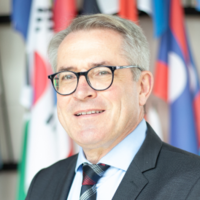
Gunther Beger
Managing Director of the Directorate for SDG Innovation and Economic Transformation, UN Industrial Development Organization (UNIDO)
Gunther Beger is heading the Directorate for SDG Innovation and Economic Transformation at UNIDO, where he drives initiatives in agro-industry, sustainability, fair production, and climate technologies. He has previously held leadership roles at the World Bank, Germany’s Ministry for Economic Cooperation, and the Ministry of Food, Agriculture, and Consumer Protection.
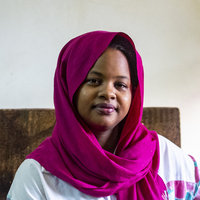
Nisreen Elsaim
Former Chair of the UN Secretary-General’s Youth Advisory Group on Climate Change
Nisreen Elsaim is a Sudanese climate activist and former Chair of the UN Youth Advisory Group on Climate Change. She holds degrees in Physics and Renewable Energy from the University of Khartoum. Elsaim co-founded the Sudan Youth Organization on Climate Change and has represented Sudan in international climate talks. A RE.GENERATION fellow of the Prince Albert II of Monaco Foundation, she works on climate, peace, and security.

Nicolas Froissard is the Director of Sauvegarde de l’Adolescence à Paris. A lawyer with degrees in Law (University of Paris-Est Créteil, 1998) and in the Sociology of Organizations (Sciences Po Paris, 2000), he spent over 20 years in leadership positions at Groupe SOS. Committed to social justice and innovation, he considers himself an “entrepreneur for a better world,” inspired by everyday heroes making a difference.

Sophie brings 13 years’ experience as a sustainability practitioner across EMEIA, the Americas and the UK in the technology and finance sectors. She currently leads Sustainability at IFS, delivering a multi-year strategy built around operational excellence, customer support and community impact. Passionate about how technology and AI can accelerate the transition to a low-carbon future, Sophie drives IFS’s ambitious sustainability agenda with the executive team, embedding it across the business.
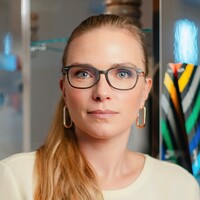
Tatjana Kiel is CEO of Klitschko Ventures and co-founder of the humanitarian initiative #WeAreAllUkrainians. She partnered with Dr. Wladimir Klitschko to develop the FACE the Challenge method, used in consulting and education to build resilience. As a reaction to the war in Ukraine, she launched #WeAreAllUkrainians to aid Ukraine and refugees in Germany. She teaches change management and leads mentoring and youth entrepreneurship programs.

Romain Mouton is the founder and president of the Cercle de Giverny, France’s leading sustainability think tank bringing together business leaders, experts and policymakers. He is also an Associate at Forward Global, where he advises organizations on influence strategies. With nearly 20 years of experience in strategic communication, he is driven by the conviction that business can change the world.

Emmanuel Normant has been Vice President of Sustainable Development at Saint-Gobain since 2016. A graduate of École Polytechnique and École des Mines, he began his career at the French Ministry of Environment before joining Saint-Gobain in 2002. He has led business divisions in Brazil and China and now oversees the company’s global sustainability strategy, with a focus on achieving carbon neutrality by 2050 and promoting resilient, low-carbon construction.
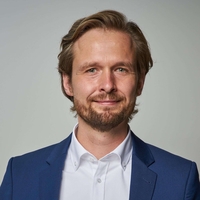
Daniel Nowack is Head of Social Innovation at the World Economic Forum and leads the Global Alliance for Social Entrepreneurship, uniting 120+ members and 100,000+ social entrepreneurs. He focuses on mobilizing private and public sectors for innovative solutions. Formerly Managing Director at Yunus Social Business, he has been a startup CFO, Google Launchpad mentor, and university lecturer. He holds an MBA from the Frankfurt School and is certified in ESG and impact investing.
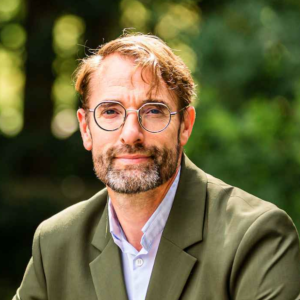
Hans Stegeman is Chief Economist and Group Director of Impact and Economics at Triodos Bank since 2017. He leads economic research and sustainability strategy, promoting a shift beyond traditional growth models. Formerly Chief Economist at Rabobank Netherlands, he began his career at the Netherlands Bureau for Economic Policy Analysis. He holds a Ph.D. in economics from Erasmus University and writes regularly on sustainable finance and economic change.

Alison Taylor is Clinical Associate Professor at NYU Stern specializing in corporate governance, responsible investing, and sustainability. She advises corporations and investors on risk, responsibility and integrity and serves on boards promoting sustainable finance. The author of the award-winning book Higher Ground, her work focuses on advancing ethical practices in business. She is a regular media commentator and writes for leading magazines.
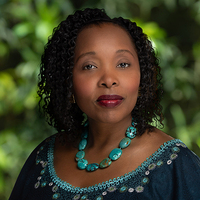
Éliane Ubalijoro
CEO, Centre for Intern, Forestry Research (CIFOR-ICRAF)
Éliane Ubalijoro, a Rwandan molecular geneticist, is CEO of CIFOR-ICRAF (Center for International Forestry Research and World Agroforestry) and Director General of ICRAF since 2023. She holds a Ph.D. from McGill University and has worked across academia, the private sector, and development, focusing on innovation, gender equity, and sustainability. She was also Executive Director of Sustainability in the Digital Age and serves on Rwanda’s National Science and Technology Council.
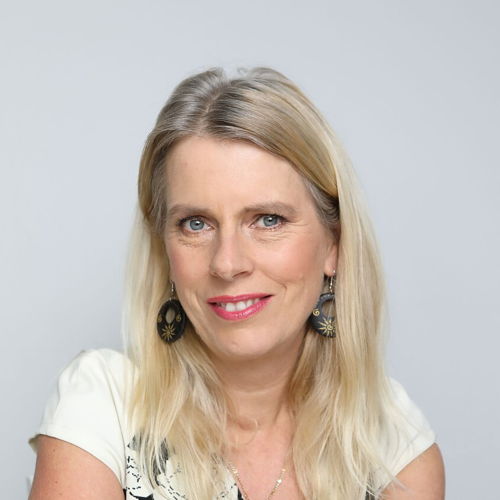
Diana Ürge-Vorsatz is Vice Chair of the IPCC and Professor at Central European University. She holds a Ph.D. from UC Berkeley and specializes in climate mitigation in buildings and urban systems. She has contributed to multiple IPCC reports and leads projects with the European Commission and World Bank, bridging science and policy to reduce global emissions.
INNOVATIVE SUSTAINABILITY EDUCATION
ESCP Sustainability Fingerprint
Every ESCP educational programme, module or certificate that relates to sustainability adheres to the ESCP Sustainability Fingerprint. It is characterized by four key features:

SYSTEMS
THINKING
Sustainability requires multi-layered perspectives. We equip students with a systems approach, helping them understand the interconnections between businesses, society, and ecosystems.
NAVIGATING
COMPLEXITY
Sustainability education offers lessons on how to master complexity. Students learn to assess risks, anticipate change, and develop resilient strategies.
SCIENCE-BASED
EDUCATION
We align business education with the natural sciences, exploring how planetary boundaries and the Anthropocene reshape organisations and strategies.
BEYOND
CONVENTIONAL
BUSINESS THINKING
Our teaching challenges conventional economic thinking, encouraging debate around the circular economy, regenerative models, or degrowth.
FEATURED PROGRAMMES
To bring these ideas to life, we offer and constantly develop new and innovative learning experiences. Core principles are that we connect theory with practice, thinking with doing, and academic excellence with practical impact. We also embrace an open-source and collaborative approach through which we share our learning materials and approaches. This has been recognized by several first prizes and highly commended entries in awards for Responsible Business Education, for example of the Financial Times.
COMMONS FOR THE FUTURE
An open-access course equipping students with management tools to drive radical decarbonisation, developed in collaboration with leading practice partners.
Learn moreTRANSFORM
A collaborative online course developed by leading European universities, providing open-access resources on sustainable innovation and entrepreneurship. Awarded by the Financial Times.
Learn more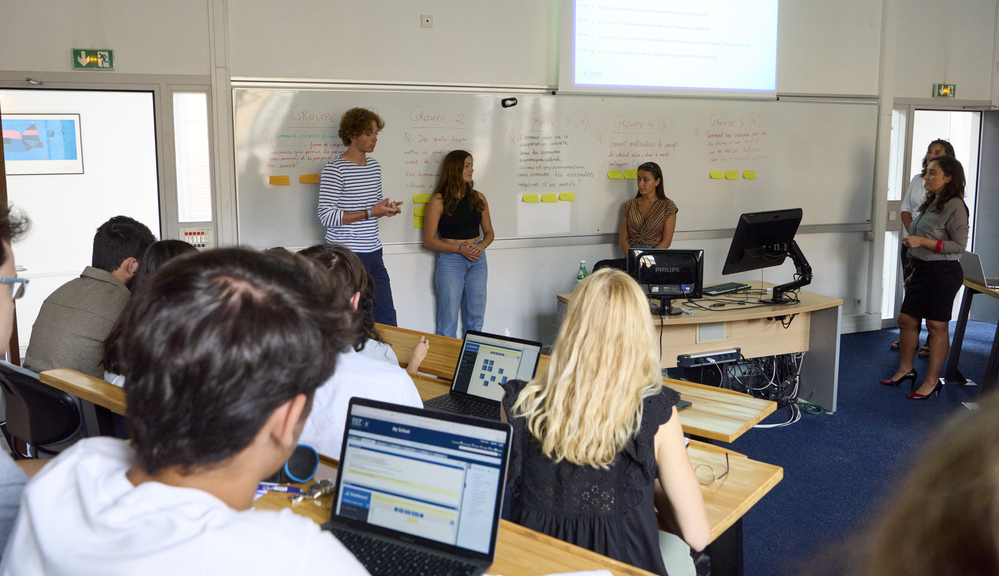
DESIGNING TOMORROW
An immersive seminar empowering 400+ students each year to tackle sustainability challenges through innovation and strategic thinking.
Learn moreDESIGN FICTION FOR SUSTAINABLE FUTURES
A pioneering elective where students collaborate with renowned futurists and designers, and use design fiction to explore bold, forward-looking solutions to global sustainability challenges, including the future of oceans. Highly commended by the Financial Times.
Learn moreOur Sustainability Connectors
Sustainability at ESCP is not only focussed on the dedicated academic Sustainability Department. It is promoted across all Departments and disciplines. Our 10 Sustainability Connectors are driving sustainability research, teaching and engagement in their subject areas.
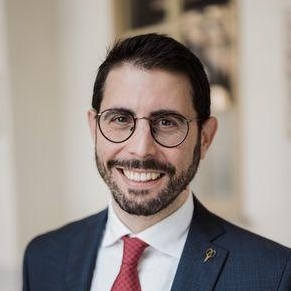
Management Control
Fabrizio GRANA
(Turin campus)
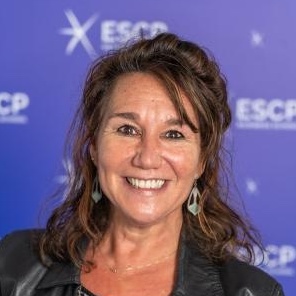
Entrepreneurship
Lola HERRERO
(Madrid campus)
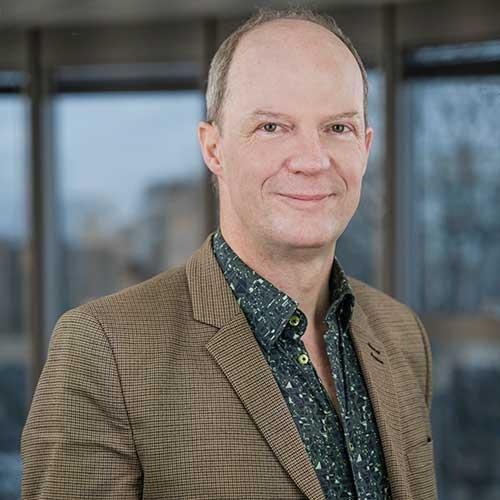
Finance
Christophe THIBIERGE
(Paris campus)
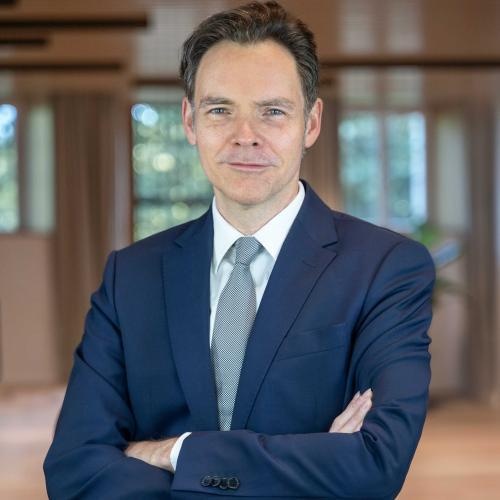
FINANCIAL REPORTING AND AUDIT
Martin SCHMIDT
(Berlin campus)
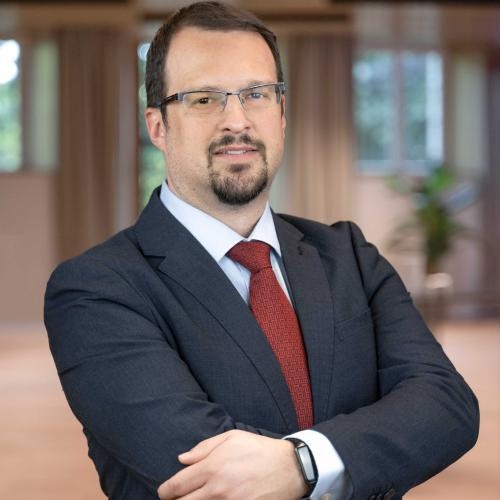
FINANCIAL REPORTING AND AUDIT
Francesco VENUTI
(Turin campus)
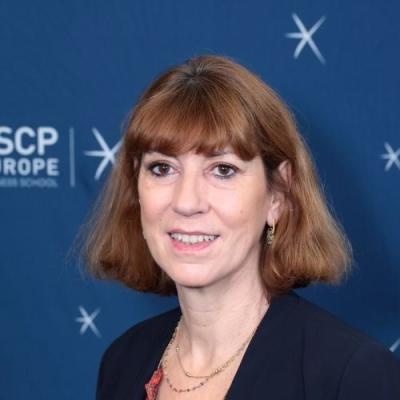
INFORMATION AND OPERATION
MANAGEMENT
Fabienne FEL
(Paris campus)

INFORMATION AND OPERATION
MANAGEMENT
Yannick MEILLER
(Paris campus)

LAW ECONOMICS AND HUMANITIES
Wioletta NAWROT
(London campus)
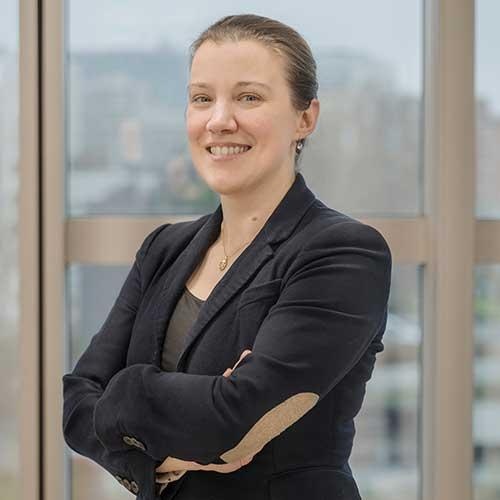
MANAGEMENT
Anna GLASER
(Paris campus)
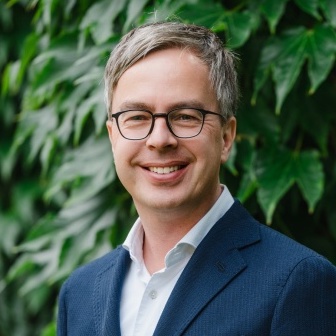
MARKETING
Robert WILKEN
(Berlin campus)
ESCP Sustainability Department
Created in 2021, the Sustainability Department at ESCP brings together over 25 professors and more than 15 PhD students, working to integrate sustainability into all academic programmes and research activities. Faculty of the Sustainability Department deliver sustainability courses across ESCP’s core programmes (BSc, MIM, MBA, EMBA) and lead specialised degrees such as the MSc in International Sustainability Management and the MSc in Sustainable Entrepreneurship and Innovation.
The Department also drives research on topics such as sustainable business models, circular economy, and CSR, while promoting a transversal approach to sustainability across ESCP. Faculty members of the Department collaborate closely within the remits of the ESCP Sustainability Institute and ESCP RESET with ESCP’s other faculty in Marketing, Finance, Operations, Entrepreneurship and other disciplines.
Professors of
the Department

Julien Schmitt
Coordinator of the Sustainability Department
jschmitt@escp.eu

Frank FIGGE
Professor
ffigge@escp.eu

Aurélien ACQUIER
Professor
aacquier@escp.eu

Caroline VERZAT
Professor
cverzat@escp.eu

Ramon FISAC
Professor
rfisac@escp.eu

Nathalie PRIME
Professor
prime@escp.eu

Valentina CARBONE
Professor
vcarbone@escp.eu

Sylvie GEISENDORF
Emeritus Professor
sgeisendorf@escp.eu

Florian LÜDEKE-FREUND
Professor
fluedeke-freund@escp.eu
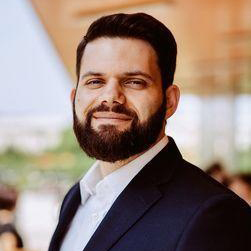
Gorgi KRLEV
Associate Dean and Professor
gkrlev@escp.eu

Joe MIEMCZYK
Associate Dean and Professor
jmiemczyk@escp.eu
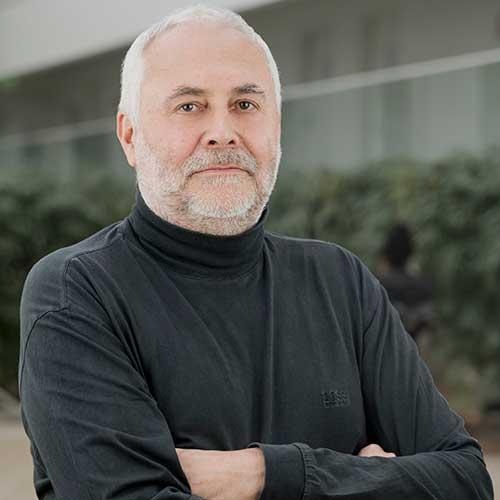
Olivier DELBARD
Professor
delbard@escp.eu

Carolin WALDNER
Professor
cwaldner@escp.eu

Oliver LAASCH
Professor
olaasch@escp.eu

Lucie BAUDOIN
Assitant Professor
lbaudoin@escp.eu

Valentin Held
Assitant Professor
vheld@escp.eu

Giulio NARDELLA
Associate Professor
gnardella@escp.eu

Pierre PEYRETOU
Permanent Affiliate Professor
ppeyretou@escp.eu
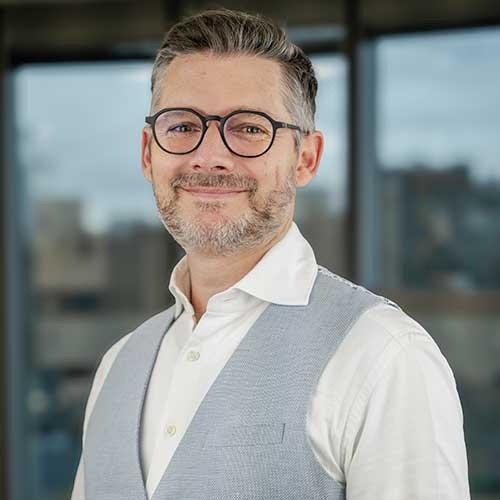
Stéphane MOREL
Affiliate Professor
smorel@escp.eu
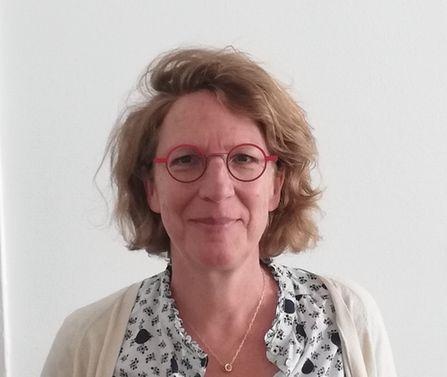
Anne-France Mariacher-Martinez
Affiliate Professor
amariacher-martinezext@escp.eu
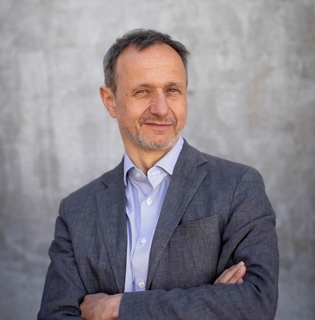
Alexis FIGEAC
Affiliate Professor
alexis.figeac@escp.eu

Adriana HURTADO
Affiliate Professor
ahurtado@escp.eu
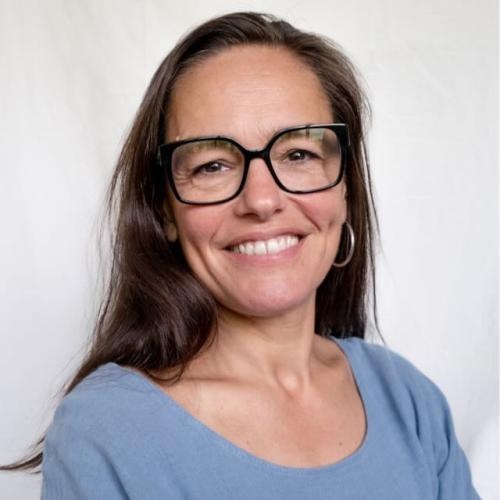
Valerie THOBOIS
Affiliate Professor
valerie.thobois@escp.eu

Alan BREJNHOLT
Affiliate Professor
abrejnholt@escp.eu
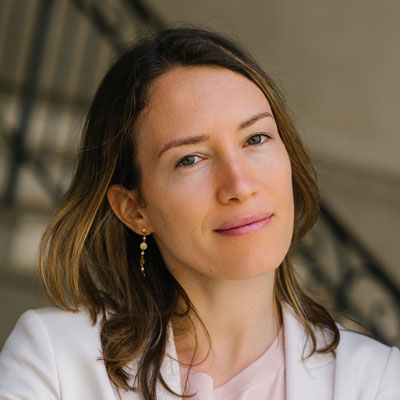
Anastasia SHEVCHENKO
STAR Centre Development Director
ashevchenko@escp.eu
Pedagogical Innovation Highlights
In addition to the specific, innovative formats portrayed below, ESCP harnesses the power of educational partnerships. Students in many programmes complete the AXA Climate School to acquire essential sustainability knowledge and ESCP widely uses the Sulitest–a standardized test like the TOEFL, but for sustainability literacy.
Designing Tomorrow
Launched in 2019
“Designing Tomorrow: Business & Sustainability” is a 3-day workshop and a 3-month continued research on sustainability for Pre-Master students just as they start learning at ESCP.
Designing Tomorrow follows a two-pillar approach to Sustainability & Business:
- Training Seminar – Students gain insights into major climate and societal challenges, explore their impact on business, and identify actionable strategies for sustainable management.
- Field Investigation – Students conduct real-world research on sustainability issues, engage with economic actors, and develop proposals for impactful change.
- 2,000+ students have participated since 2019
- The most recent editions engaged over 400 students in sustainability-focused activities.
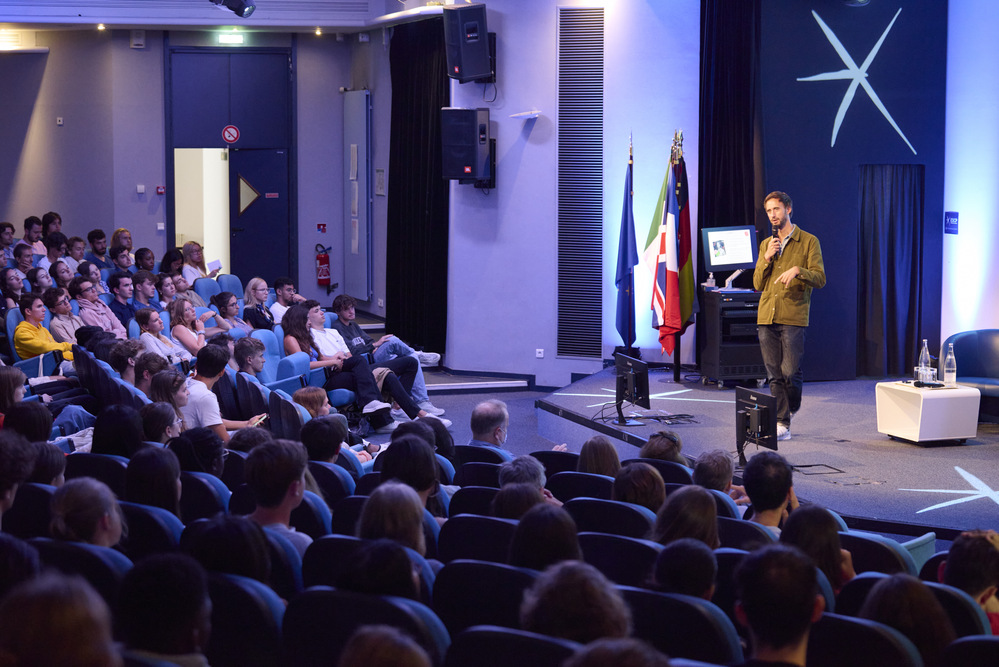
Improbable Seminar
Launched in 2011
Improbable Seminar: Where entrepreneurship meets arts and sustainability.
Created by Sylvain Bureau (Professor at ESCP) and artist Pierre Tectin, the Improbable Seminar invites entrepreneurs and students to create a work of art in just three days. The goal: to challenge entrepreneurial habits and spark creativity by exploring social and environmental transformations through art.
Motto: The seminar enables participants to create the Improbable, when the Probable becomes unacceptable.
*Over 1,000+ participants from companies like Orange, BPCE Group, Canon, EDF, CNES (French National Space Agency), Lufthansa, or Orange.
In 2018, Improbable shifted its focus to environmental issues, encouraging critical reflection on current business models and technological innovations.
Supported by the Improbable by Galeries Lafayette Chair and now integrated into several ESCP programs, including the MSc in Digital Transformation, the seminar continues to expand. In 2024, students exhibited their
work at Camden Art Centre in London, and in 2025, the Improbable reached Stanford University, where 40 participants created nine artworks in a single day.
Re-Think
Launched in 2016
Re-Think is a 120-hour specialisation offered to Master in Management students on the Paris Campus. Putting a strong emphasis on social sciences, it explores the major transformations of capitalism - ecological, technological, social, and political - while developing alternative business models.
The specialisation is organised around two central blocks.
- The first block is devoted to developing critical thinking and reflexivity among the students through courses such as “critical perspectives on capitalism” and “the dark side of sustainability”.
- The second block is centred on understanding and developing alternatives to mainstream management models through courses such as “circular economy”, “alternative organisations”, “tools & methods for social impact evaluation” and “field-studies in alternative organisations”.
CREATING IMPACT IN AND BEYOND THE ESCP COMMUNITY
Internal Transformations
Measuring and Managing Our Carbon Footprint
ESCP Business School is systematically tracking its carbon footprint
Driven by the Associate Dean’s Team
ESCP has successfully completed its inaugural federal carbon footprint assessment that related to the 2022 academic year (September 2021 to July 2022), marking an important milestone. The carbon footprint is now continuously calculated and monitored, which has built the foundation of a carbon reduction plan that aims to enable a 55% reduction in carbon emissions by 2030.
ESCP’s carbon footprint assessment began in 2022, guided by the GHG Protocol. A key decision early in the process was to include student mobility as a major factor in the carbon footprint calculation. Given ESCP’s multi-campus model, where students are required to study in at least two cities, mobility is deeply embedded in the school’s identity. However, it also represents a significant environmental challenge, contributing heavily to Scope 3 emissions.
The final report, audited by PWC in 2024, confirmed total emissions of 6,715 tCO₂, with 4,409 tCO₂ (Scope 3), largely driven by travel.
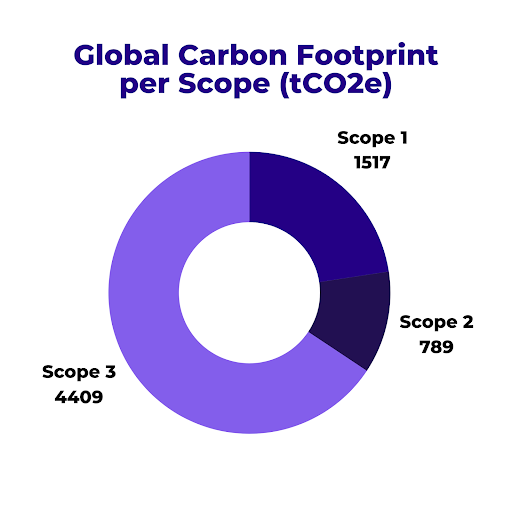
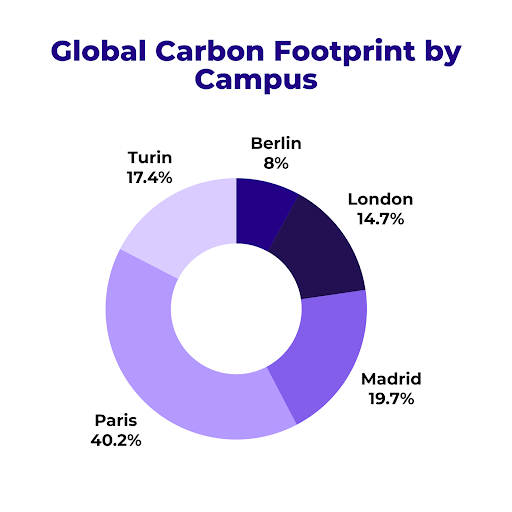
Fostering Continuous Innovation in Sustainability Education
Le Campus de la Transition
Driven by the Associate Dean’s Team
At ESCP, we believe that sustainability should not be confined to specialized courses but integrated across all areas of higher education. The Campus de la Transition workshop equips professors with the tools to embed sustainability in their teaching. It represents team-building opportunity for collective transformation and shall enable all Departments to ground their teaching in sustainability.
Learning Objectives
✔ Understanding the systemic nature of sustainability challenges.
✔ Providing educators with tools to enhance their teaching practices.
✔ Building a committed faculty that fully embraces sustainability education and always remains at the cutting-edge of innovative pedagogy.
Since 2023, three workshops have taken place:
- The first edition focused on helping ESCP’s Sustainability Department define a transformation strategy for the school.
- Following editions trained professors from various Departments to redesign their syllabi and put sustainability at the core.
- The ESCP Doctoral School has started hosting its introductory seminar on sustainability at the Campus de la Transition.
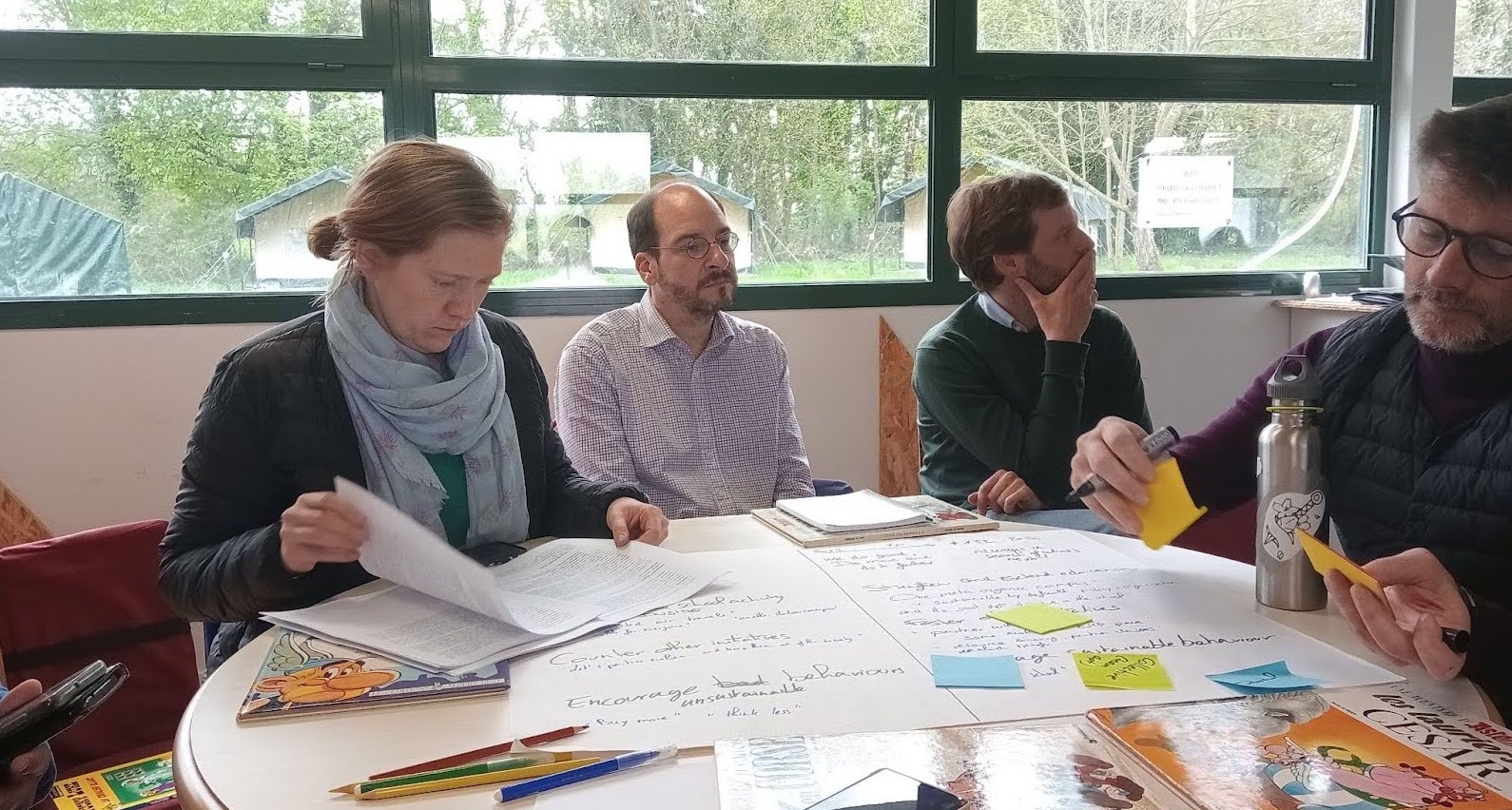
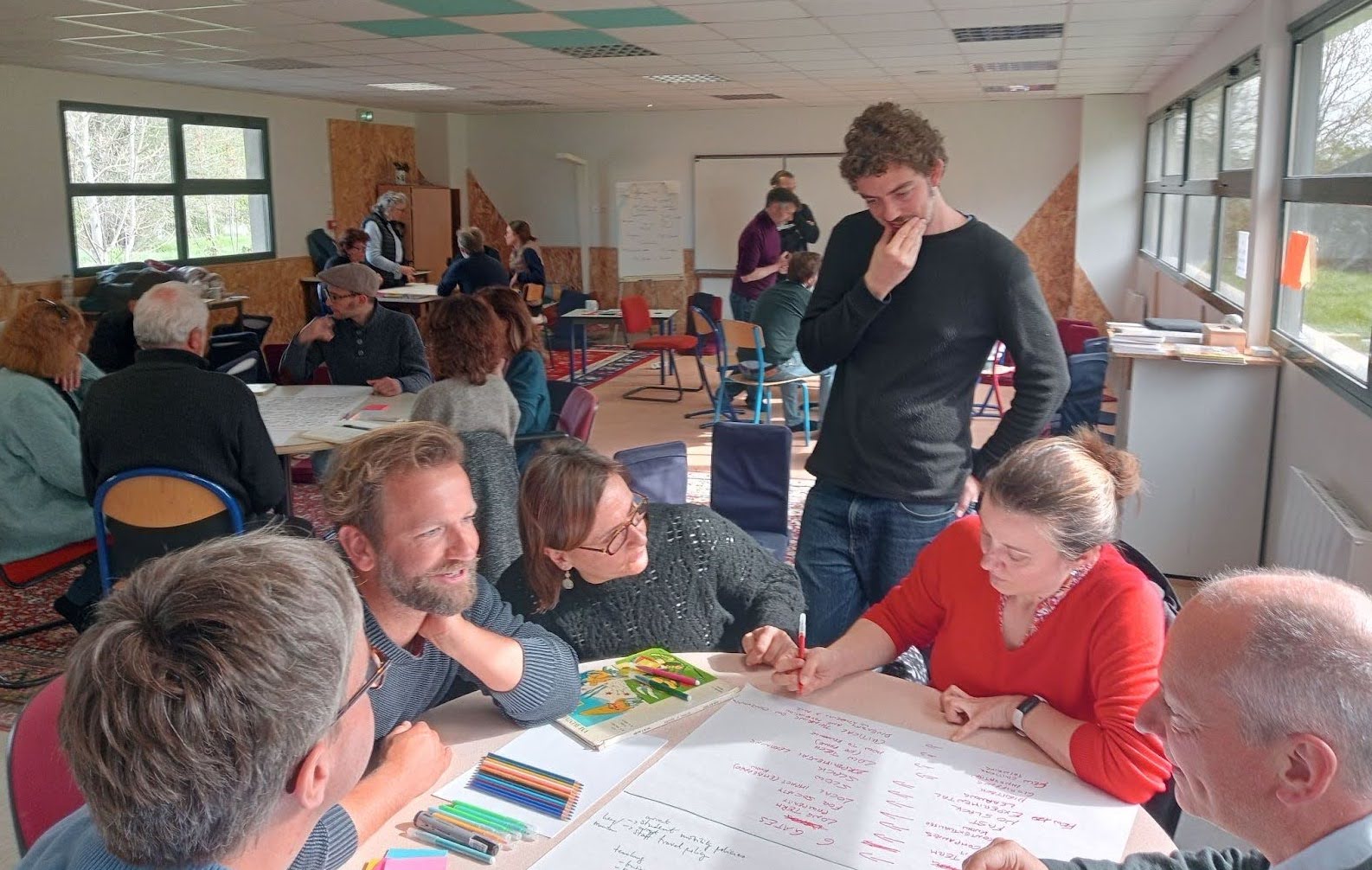
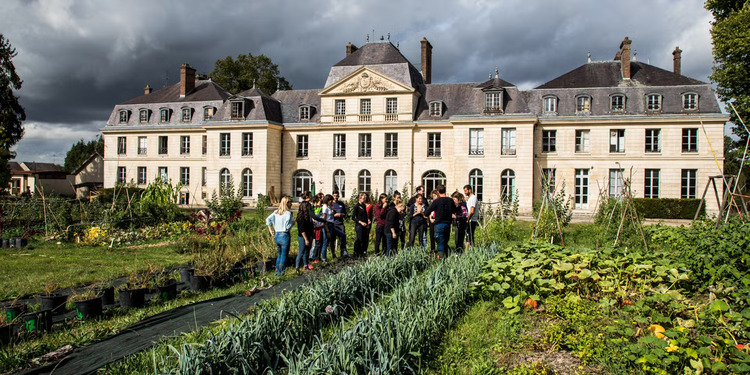
Designing Tomorrow: Business & Sustainability
Driven by the Sustainability Department
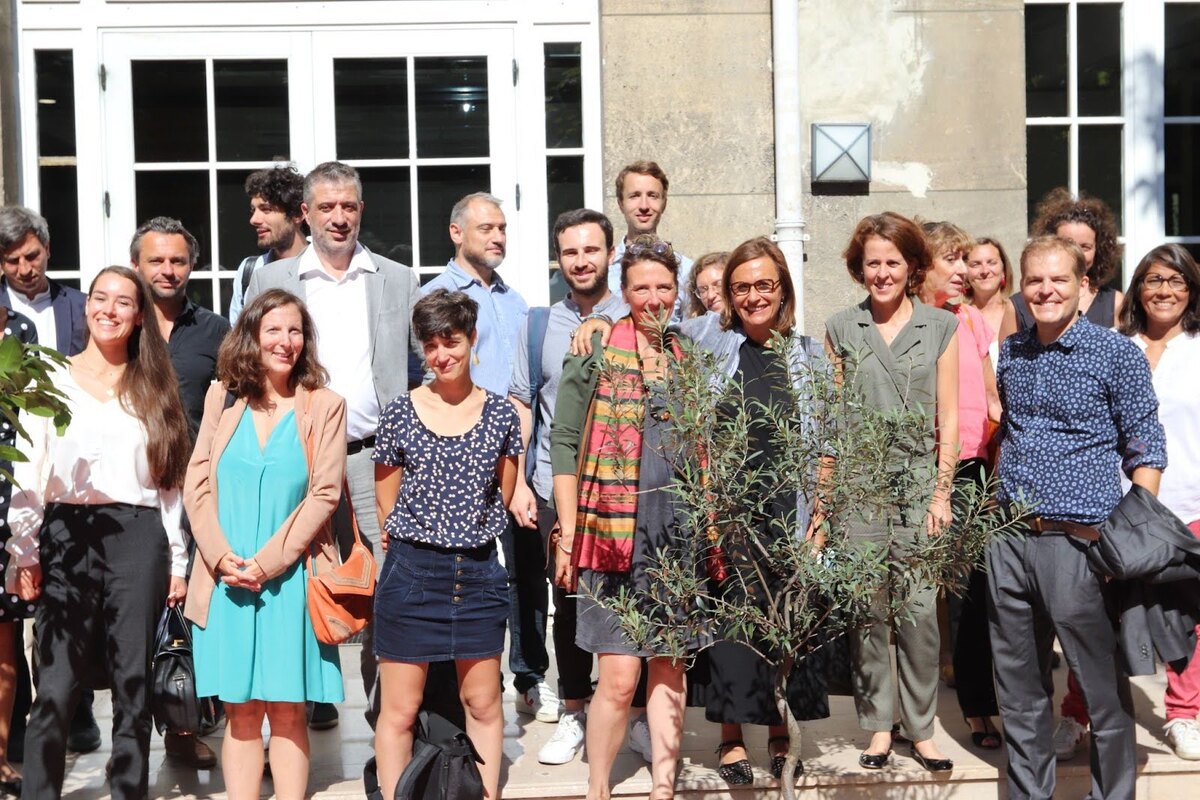
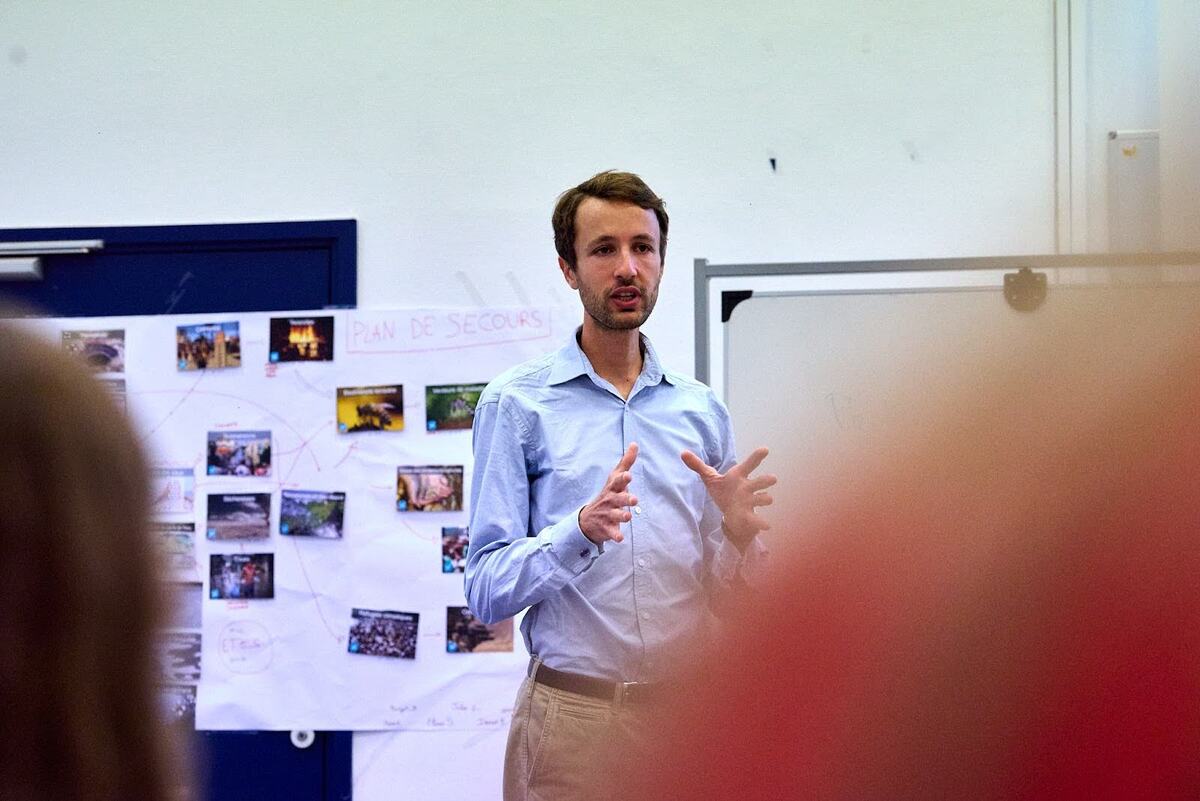
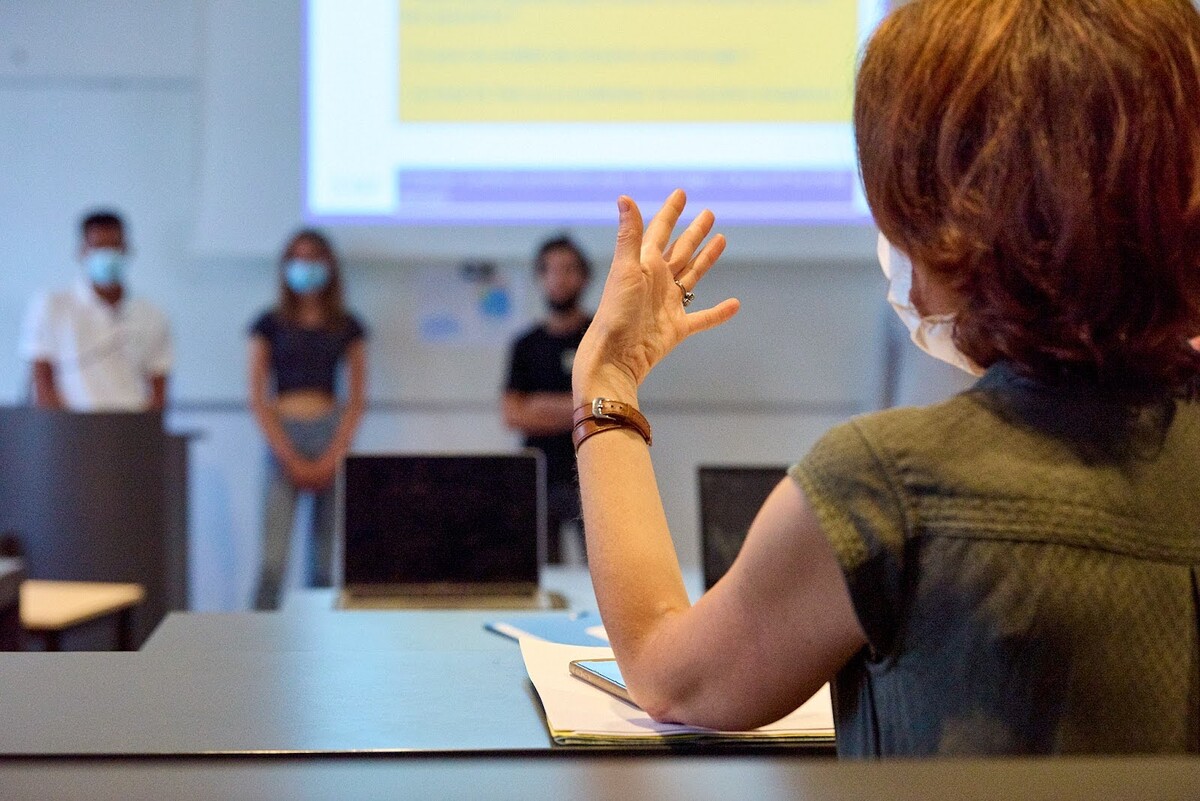
This seminar is a flagship initiative at ESCP Business School, integrating sustainability into business education from day one. Through workshops, case studies, and expert discussions, it equips Master in Management students with the knowledge and skills to address global environmental challenges.
- 2,000+ students have participated since 2019
- The most recent editions engaged over 400 students in sustainability-focused activities.
Strategic Climate Partnerships
ESCP & Axa Climate Partnership
Driven by the ESCP Sustainable Institute
ESCP Business School has launched a strategic partnership with AXA Climate with the aim to address the pressing need for climate adaptation. While many businesses focus on reducing emissions, adaptation remains underdeveloped. To bridge this gap, the Adaptation(s) Programme was created to support both businesses and public institutions in navigating climate risks.
The partnership follows a close collaboration between ESCP and AXA Climate, in which many educational programmes use the AXA Climate School platform to equip students with knowledge on sustainability challenges.
The programme is built around three key initiatives:
- A research component: ESCP’s Sustainability Institute, led by Professor Aurélien Acquier, conducts research and publishes scientific studies with high practical relevance, and releases an Adaptation Barometer to analyze how organisations approach climate adaptation and showcase best practice
- A series of public conferences: These will bring together professionals and students to discuss crucial topics, such as regional adaptation strategies, the intersection of adaptation and mitigation, and communication challenges in climate transformation.
- Exploration programme: Around 20 pioneering organisations (CAC40 firms, SMEs, and local authorities) will participate in collaborative workshops, expert meetings, and study trips to foster innovation and co-develop adaptation strategies.
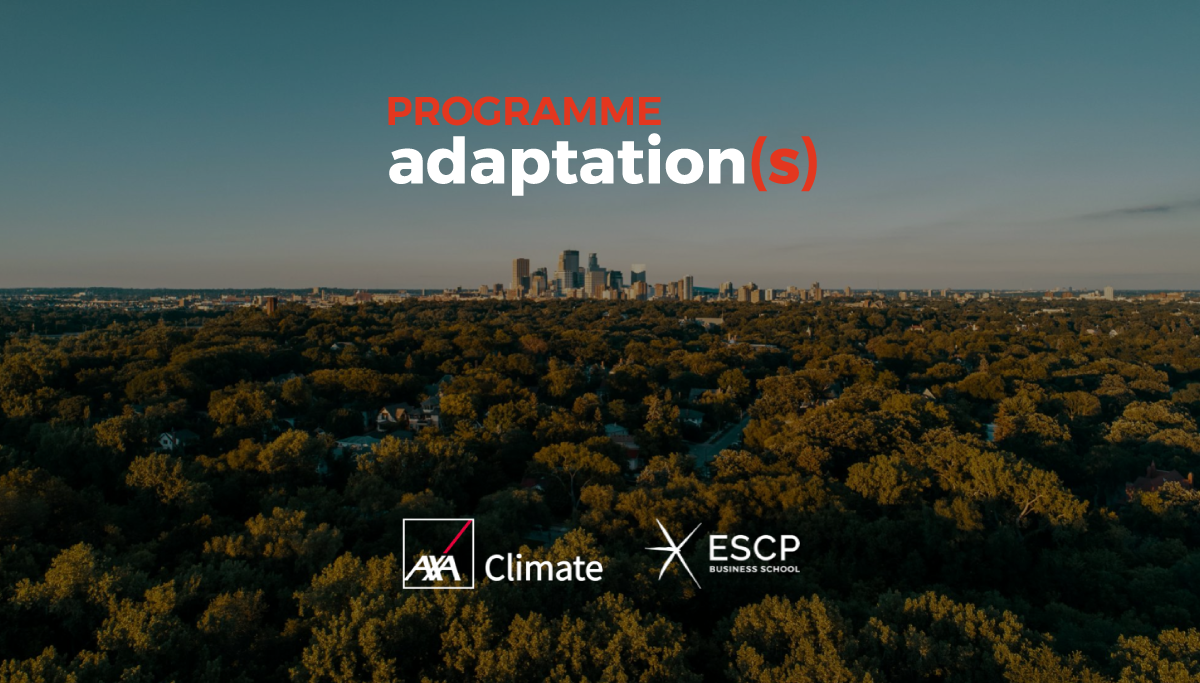
Adaptation is, above all, a practical approach, shaped by the specific needs of each region and organisation. This innovative partnership, by enabling research to question practices, aims to build on what is being done today to produce common knowledge for the benefit of all. Disseminating this knowledge is obviously one of the core missions of our School, particularly with regard to sustainability issues, which we have been integrating into all our teaching and research activities for several years now.
 Léon Laulusa
Léon LaulusaExecutive President and Dean of ESCP Business School
Working With Stakeholders
Internal
Student societies
ESCP hosts more than 16 student societies explicitly dedicated to sustainability, addressing environmental and social challenges! For many years, five major associations - Oikos, NOISE ESCP, Lighthouse, GEA, and the sustainability group within AGORA (the official student body at ESCP) - are part of the Student Sustainability Board to collaborate and engage with the Associate Dean of Sustainability, the ESCP Sustainability Team as well as the wider administration on institutional changes. The group coordinates initiatives across Campuses. All societies contribute to raising awareness and driving action for a more sustainable future.
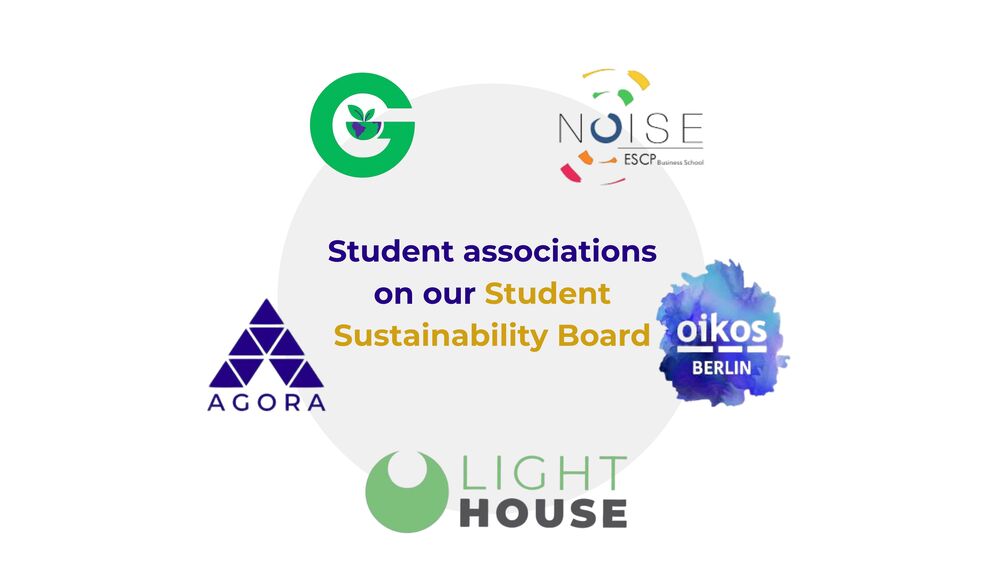
ESCP Blue Factory and Alumni Sustainability Founders
The ESCP Blue Factory supports students and alumni entrepreneurs of ESCP Business School, in their projects through resources and programmes, at every stage of their entrepreneurial journey, from exploring the idea to international expansion.
As we foster sustainable mindsets, many of our startup founders have a strong sustainability focus.
Find out more on the website of the ESCP Blue Factory here.

ESCP Transition Network (ETN)
The ESCP Transition Network is a diverse collective of alumni, professors, students, and staff members committed to driving transformations aligned with the Paris Agreement and scientific recommendations on climate change mitigation. With 100 members from the ESCP community, the ETN collaborates to connect organisations to work jointly on the sustainable transformation.
External
Strengthening Sustainability Leadership & Collaboration
The High-level Advisory Council on Sustainability: The Advisory Council on Sustainability at ESCP Business School unites leaders from key fields—climate science,
activism, Gen-Z, policy, finance, civil society, social and environmental organisations, corporate industry, diversity and inclusion, international organisations,
and global networks—to drive sustainability in business education, research and practice. It ensures accountability, fosters collaboration, and accelerates
the transition to a carbon-neutral and equitable economy through leadership and collective action.
Find out more about the ESCP Advisory Council.
The Sustainability Leaders Alliance (in formation): The Sustainability Leaders Alliance is a coalition of top-tier business schools and universities working together to drive innovation and impact in higher education and beyond. By fostering collaboration, knowledge exchange, and joint initiatives, the alliance aims to move beyond isolated efforts and establish a structured, long-term framework for addressing global sustainability challenges. With a global focus, it creates a shared platform for research, events, and agenda-setting.
Defending knowledge, defending freedom
At a time when data is being erased, scientific budgets are being slashed, and fundamental words like “environment” and “woman” are being flagged, we at ESCP Business School stand firm. By supporting #StandUpForScience, we reaffirm our commitment to defending knowledge, academic freedom, and the values that sustain open, inclusive, and democratic societies. Our academic community is deeply engaged in this mission, through research, debate, and the organization of conferences that foster dialogue and critical thinking. In solidarity with the global academic and scientific community, we raise our voices to say: we need science to grow as a society; we need science in education, for knowledge, for diversity, and for inclusion. The obstruction of education is the path to obscurantism, and a threat to freedom.

Memberships and partnerships
ENGAGED RESEARCH CREATING VALUE FOR SOCIETY AND THE ECONOMY
Research and Partnerships focused on Sustainability, Ethics and Responsibility
ESCP is actively engaged in research and practice initiatives linked to sustainability, ethics and responsibility topics, fostering partnerships and joint ventures that support its commitment to creating a more sustainable future. Research, education and impact are tightly interlinked.
The ESCP Sustainability Institute
The ESCP Sustainability Institute prepares leaders to tackle the complex challenges of climate change, environmental limits, and major societal issues. Through a strong focus on collaboration and innovation, it aims to build a fair and sustainable future for communities and organizations around the world. To achieve this, the institute promotes cutting-edge research and education in sustainability management, positioned at the crossroads of management, natural sciences, and social sciences, with meaningful impact for policymakers and practitioners.
Learn moreRESET - ESCP Research Centre on Environmental and Societal Transition
RESET drives forward research on some of today’s most urgent global challenges. Its mission is to bring together diverse academic fields, such as organization studies, marketing, entrepreneurship, machine learning, international management, design science, and economics. The centre focuses on key sustainability issues, including emerging models and frameworks for corporate sustainability, sustainability transitions, and rethinking future growth within the limits of our planet. RESET collaborates closely with ESCP’s Sustainability Institute.
Learn moreESCP STAR - Sustainability Transformation & Applied Research
ESCP STAR is a research and education centre dedicated to supporting organisations in their sustainability transformation. By connecting academia and business, STAR facilitates knowledge transfer, continuous learning, and collaboration. The centre provides guidance, training, and research-based insights to help companies integrate sustainability into their business models. With a focus on applied research and practical implementation, STAR empowers companies to transform sustainably.
Learn moreChair for Responsible Innovation in Africa
The “Chair for Responsible Innovation in Africa” was created with support from the AXIAN group and Attijariwafa bank. Its purpose is to help transform Africa for a sustainable future and develop the human capital needed for its social and ecological transition.
Learn more
